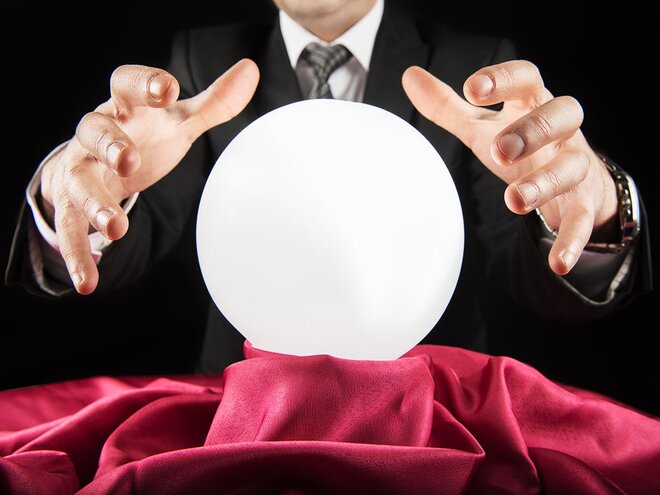
There was a time when 'doctors' used to bleed patients with mental health problems (on the diagnosis that 'the devil has got them'). That used to count as medical 'science' at some point in human history. One day, historians will look back at economists and put the same inverted commas around the description.
In recent history, few professions have disappointed as many people, and as spectacularly, as economics. One can talk about the legal profession, perhaps, and politics, that old suspect, but then nobody claimed grandly to be the answer to the world's problems the way that economics has. From being the moral compass of the world to being the prescriptor of public policy, even governance, to the current fad of deciding the models of human happiness, economics has evolved in fits and starts, always interesting, always ambitious but always wanting.
The Great Recession has laid bare many of these claims. Mathematical models, which claimed to lay out precise boundary conditions, have failed miserably in a large number of areas: credit-rating models, CDS pricing, option pricing (Black Swan effect). This list is definitely incomplete; there is not an area of economic endeavour that has not suffered the effects of dis-preparedness by economic players, who believed in classical economics. Keynesians have been using older models to argue that keeping interest rates low and creating new money will revive aggregate demand, in turn reviving the economy, to the point that rates were taken negative on 40 per cent of the world's bonds, destroying the savings impulse. The distortions so created have yet to play out on their after effects, when the current process of deleveraging could uncover fingers of instability, which nobody has even imagined, let alone seen.
Hayek has said long ago that markets and (individual) entrepreneurial action is the best driver of economic growth and revival. In today's world, most such initiatives are innovative/ technological breakthroughs, which can be sudden disruptors of existing industries or creators of new ones.
Macroeconomists have been running a Faustian conspiracy to protect the reputation of their models rather than question their efficacy. Just like the Great Depression was born out of serious policy errors of fiscal and monetary policy, the aftermath of the Great Recession may have seen grievous errors from the usage of outdated models in a world where technological innovation (even more than entrepreneurial initiative) is the driver of economic growth.
This has been seen in other academic areas where there are large gaps in the data and huge uncertainty in the cause-effect relationships between driving and independent variables. In string theory, for example, there are these 'fads' that build up among physicists and the observed facts no longer seem to matter. Simply because no set of facts fills up completely the unknowable gaps, leaving enough space for your favourite theory (espoused by a celebrity theorist) - a phenomenon also seen in a much lower discipline, politics.
Such 'purges' are nearly political developments, like Mao's Great Leap Forward or the rise of Nazism. Any thought process contrary to the establishmentarian philosophy is crushed. And the establishment is dominated by some celebrity economist, who has a vested interest in the survival of his espoused viewpoint. In case of macroeconomics, the mathematical elegance of the model had to be maintained at all costs, even if it meant assuming away reality. Like Paul Krugman has been cheerleading the quantitative easing operation in the US, regularly pointing out that all the money printing has not (yet) resulted in the onset of inflation. That's like blowing a balloon and then celebrating the fact that it has not yet burst and hence will never burst. The effects of the gigantic bubble in bonds have still to play out yet, but I mention this as an example of how the consensus can be hijacked by a celebrity economist, who drives public policy in a particular direction, with no possibility of any mid course evaluation.
But physics will still remain a science, principally because observations don't change in different experiments with similar conditions. In particular, the observed (i.e., inanimate objects) does not change because it is being observed. On the other hand, macroeconomics is trying to model individual human behaviour and study its agglomerates. Given that human beings have individual minds, their behaviour can be vastly more complex and unpredictable than the behaviour of atomic particles. So the normative dynamic stochastic general equilibrium (DSGE) models of macroeconomics do not work, except patchily. And there is no way to tell when they will work or not. Particularly the not.
This creates a peculiar problem for the user of macroeconomic models. He must consider himself educated in macroeconomics and hence must think he 'knows' what is going to happen. But if macroeconomics itself does not know, then how can the user tell when he does not know? So he thinks he knows and then does things in that belief. If he were doubtful, he would not jump off the top floor.
In that, macroeconomics turns out to be a pernicious sham and very dangerous mis-education that does not even post a disclaimer to the user to jump at his own risk. It is particularly pernicious when used in public policy because politicians will quote economists to justify and push through a flawed policy - a case of the blind leading the blind but in a Pied Piper fashion. The trouble is in calling it a 'science'. Education, yes, maybe. Art, definitely yes. But an all-things-to-all-people science that everyone can and should know, that should come with a lot of disclaimers.
The author teaches, trades and writes at spandiya.blogspot.com.
